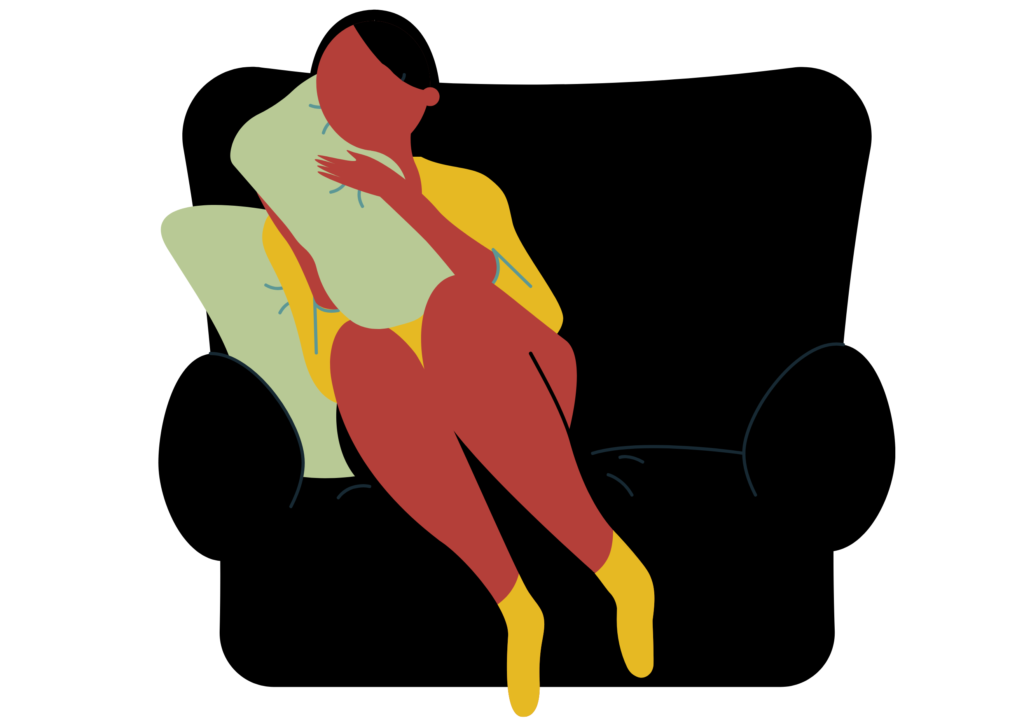Counseling for Chronic and Long-Term Illnesses
Counseling for Chronic and Long-Term Illnesses
Most people don’t think counseling for chronic illness is necessary. However, once they begin to speak with a counselor, they begin to understand how much they benefit from the support.
It can be disconcerting to learn that you or your loved one has been diagnosed with a chronic illness. Some examples of chronic illness include:

- Chronic pain
- Asthma
- Heart disease
- Depression
- Cancer
- Neurological Disorders
- Fibromyalgia
It’s often difficult to identify all the ways an illness affects someone. This can lead to a person feeling constantly overwhelmed and hopeless. The conversations clients have in counseling for chronic illness sessions, however, can help bring clarity around all these elements. This can help a client feel a greater sense of ease and find a healthier way to work with a long-term health situation.

We offer affordable online and in-person counseling for chronic and long-term illnesses.
Contact us today if you’re looking for help coping with with a chronic or long-term illness. Our Access Center specializes in matching each client with a therapist that is a perfect fit. Our team will help you get matched with a therapist right for you.
What determines a chronic illness?
In a broad definition, the CDC describes a chronic illness as a condition which has persisted for a year or longer and has required ongoing medical attention and/or has considerably limited activity in one’s daily life
Chronic conditions affect over 145 million people in the United States. 48 million people reports having a disability related to a chronic illness. One quarter of U.S. adults have more than one chronic illness.
Coping with chronic & long-term illnesses
If you’ve just found out that you have a chronic illness, you may experience something akin to grief. After all, this is a loss. You may see it as a loss of independence, a loss of youth, or a loss of freedom. It’s completely normal to go through a process in which you feel tearful and/or scared. Seeking counseling for chronic illness is also completely normal.
Anger and irritability are not uncommon emotions. If you allow it, these emotions will help you to release negative energy and begin to make some sense of your condition. In doing so, you make way for a new normal. It will take time to get to this point so be gentle on yourself as you begin the healing process.
Once you’ve worked through your feelings about the illness, you will be ready to move forward in your life. Some people see this as a challenge and will fight to conquer the limitations that they are now met with. Others will want to ensure that they’re doing everything they can to maintain the best health they are able. Either way, these are some areas to focus on throughout your life.
Knowledge is power
Use this time to find out as much as possible about your diagnosis. Search on the internet – but be discriminating. Look for sites that are government sites or well-known non-profits as these tend to be more accurate. Talk to others and check out books at the bookstore or library. Write down questions that you generate from these sources and ask the doctor to clarify. The more that you know about your condition, the better you’ll feel.
Self Care
- Nutrition is particularly important now. Finding the foods that will support your health and energy level will make a big difference in your ability to function. If you tend to eat well anyway, great! If you’re ambivalent or don’t think you can make big changes, start small. Eliminate processed sugar, alcohol, or fats from your diet and add in fresh (or frozen) fruits and vegetables.
- To the best of your ability, begin an exercise program that is appropriate for you. Exercise will increase the chemicals that help you to feel better. If you need help getting started, ask to be referred to a physical or occupational therapist.
- Sleep is vitally important now. This is the time that your mind and body is rejuvenated and energy is restored. With adequate rest, you’ll feel more capable of doing the things that are healthy for you.
- Prayer and/or meditation can be enormously helpful in maintaining your focus. If you’ve never done this, there are books, websites and professionals that can help to get you started. This can be a very powerful part of your healing process.
Maintain social activities
It’s easy to isolate yourself when you are initially advised of your diagnosis. Depending on your personality type, some of this is normal and helpful. Some people need to spend time alone to make some sense of what they have just learned. Others benefit more from being around people and talking about their fears. Know yourself. If you find that you’re spending too much time alone, reach out to family and/or friends. If you’re depressed and/or ruminating about your health, find someone to talk to.
You can build a life worth living. It might look different than what you are used to but finding your new normal will make this transition easier and allow you to move on with your life.

We offer affordable online and in-person counseling for chronic and long-term illnesses.
Contact us today if you’re looking for help. Our Access Center specializes in matching each client with a therapist that is a perfect fit. Our team will help you get matched with a therapist right for you.
